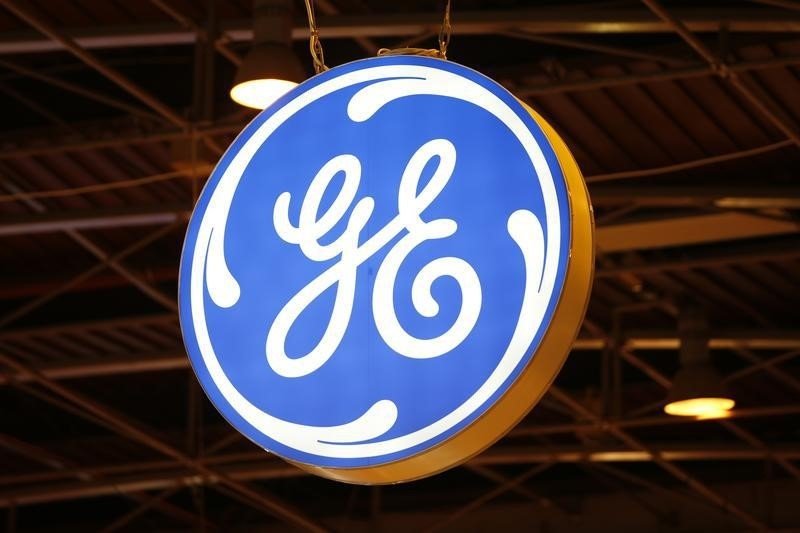Markets
Nigeria Needs Investment to Develop Power Grid —GE Boss
Published
7 years agoon

The Global Vice President at General Electric, Mr. John Rice, who was at the recent Nigerian Economic Summit in Abuja, spoke with EVEREST AMAEFULE about how some power equipment brought into the country by his company had to wait for one year at the port, among other issues
You have been to Nigeria a number of times; what is your impression about the country?
It appears to be rebounding a little bit from the recession and this is encouraging but one or two quarters don’t make a recovery. So, we need to watch that carefully but for us the country holds tremendous amount of potential.
We see progress in some areas; opportunities for progress in other areas but from our global perspectives, it is a very important place for General Electric. We don’t see that changing.
The size of the country, the population, the natural resources, the commodities that are here, the need for infrastructure — all play to GE’s strength. So, we think as a company we can provide a lot of the basic infrastructure needs or support the development of the basic infrastructure.
In addition to specific projects, equipment and services that we provide, we try to get heavily involved in capacity building – training and development of people so that there is longer lasting benefits than just a specific project that accomplishes a specific objective.
What are the countries that are in competition with Nigeria for investment funds?
I think every country competes with Nigeria, and Nigeria competes with every country. If you think about global capital and industrial activities in the development of economies, the work requires a combination of private and public capital.
The public capital can easily come from the government. The private capital can come from many sources but all of these sources have choices about where they invest — whether for a company like GE that operates in 180 countries or a company like Dangote which is an indigenous Nigerian company with broad regional and global capabilities.
Each of those investors makes the choice about where they allocate capital on behalf of their shareholders. And so they have to think about risk-adjusted returns. You want to put your money in a place where you think you are going to be paid back or get a return on an investment.
So, it is really important for the government to solve the challenges that come with infrastructure in Nigeria. Government has to contend with attracting fund for direct investment. To do that, you have to give investors some confidence — not a guaranty because there is always a risk with these kinds of decisions — but some confidence that they are going to have a return on investment over time.
We are a big company. So it is easy for us to get involved in multiple countries.
The bigger question for us is: can we actually make things happen here? We have lots of ideas; the government has lots of ideas. We are looking at energy investments and the big question for us a lot of times is: what will it take to make this deal work? And how do you move forward in a reasonable timeframe?
The government has a role because it can do things to move projects forward so long as they can do things to slow projects down. The same way we can. We can do things to move projects along; we can do things to slow projects down.
In my comments in the plenary session, I talked about the importance of speed. Governments should be measured on speed and how they are capable to fix problems and fixing them quickly. Companies should be held to the same standards and measurements.
It is important for us to do things in Nigeria that matters quickly; not just when we feel like it. I think it is true for the Federal Government and the state governments. I think there is a level of accountability that people expect. When they don’t get that, they are disappointed, angry, and they vote for change.
When you talk about speed, can we focus on Nigeria and what exactly are you looking at?
You have to break it down to the lowest common denominator. I can refer to our first power project we committed to the government to do early last year. We delivered the units for the first power project a year ago and they were in Customs for almost a year. When you think about that, this is a country that needs power badly. Why would the units sit down for a year? It is paper work; it is approvals; it is this argument; it is that argument.
The moral of the story is that nobody was responsible for the speed of processing those units; processing the paper work and getting the units out of the ports to the places where they were supposed to be situated and where the power can be generated.
So, I am guessing but I will bet that nobody from the government perspective that is involved in this is being measured on speed. The job of a Customs organisation is not to keep things out but to let things in – the right things. Keep the wrongs things out and let the right things in.
These are power generation units; they are the right things. If you look at all the processes and regulations that affect the speed matrix, they should help to move things faster.
Honestly, I can make this comment in many of the countries where we do business. So, this isn’t an isolated circumstance. Think about government bureaucracies around the world; I don’t think many people know that they are paid to let things go quickly.
Is it not possible that you did not do your documentation properly?
Maybe, initially. But that is not what caused the delay. Sometimes, it is a documentation problem; sometimes, it is a situation we contributed to but when it is our problem, we go and fix it. We haven’t been paid for those units. Our interest is having them through, getting them situated, turning out the electricity and getting paid.
The GE is involved in the country’s power industry, and there are projects here and there. When are these power projects going to yield the desired results?
The units we finished talking about — 240 gigawatts of power that should have been installed last year haven’t been installed. There is much more power in the grid today than when I started coming to Nigeria 15 years ago.
One of the things I think we have to do is to recognise that all infrastructure is not created equally. There is a hierarchy like a pyramid of infrastructure. At the very bottom of the foundation is electricity infrastructure.
Electricity, healthcare, and clean water are the basic building blocks on which you build an economy that can create jobs and allow for growth. You cannot just rely on natural resources.
If you don’t have electricity, it is very hard to educate people. It is very hard to help small and medium-size enterprises; they have to run their own power generation, and it is expensive. So, it adds to the cost of what they do. Electricity happens to be one of the fundamental building blocks.
What I am asking is that the GE happens to be one of the companies involved in power projects in Nigeria. Why is it difficult for these projects to deliver power to the people after the money spent on them?
It is hard to get equipment into the country. We have projects that were held up because the roads and bridges that we require to move the equipment from the ports to the sites hadn’t been developed well enough. That takes a long time to get fixed.
The issue with respect to power getting to people also involves the grid. That requires a whole level of investment.
The newly privatised companies now have to invest to develop the grid because you generate the electrons. But if you cannot move them in an efficient way to the place they need to be in order to be paid for, then you haven’t solved the purpose of the power generation.
A study indicates that there is some substantial amount of investment that has to be made on the grid.
Is it that a holistic approach is not being taken to provide power to the consumers?
It has to be a holistic approach because you have to start with the generation and end up with a paying consumer or a paying company. Too many of the electrons that are generated in Nigeria today don’t accomplish that objective. They don’t end up getting to somebody who is going to pay for it. It is not an easy problem to fix.
This is a massive challenge that many countries have. You can generate the electrons. You have to get them where they need to be, and you have to have someone that is willing to pay for it. Otherwise, you are not going to be able to sustain a regular investment in your electricity infrastructure.
Apart from installing equipment, is there any other role that GE can play in ensuring that the power gets delivered to the paying consumers?
We have what we can get involved in dedication of financing for some of these projects. So, we have the equipment. We provide lifecycle maintenance service. And we have an array of digital technology which now can help in the efficient transfer of the electrons from the point of generation to the point of consumption.
Securing financing, bringing in third parties, and getting export credit from around the world to support some of Nigeria’s power needs; these are all roles we can play.
Are you in talk with the government to explore such roles?
Yes, we are and the government is very receptive to that but if you want to attract capital (private capital) to energy projects, you need an offtake agreement. Somebody has to agree to pay for the power. That somebody can be the government, a company or a state. It has to a responsible counter-party.
Is the CEO and Founder of Investors King Limited. He is a seasoned foreign exchange research analyst and a published author on Yahoo Finance, Business Insider, Nasdaq, Entrepreneur.com, Investorplace, and other prominent platforms. With over two decades of experience in global financial markets, Olukoya is well-recognized in the industry.

You may like
-
Nigeria Considers Creation of 31 New States Despite Economic Challenges
-
Visa Denial Sparks Airport Drama as Kenya Airways Defends Staff
-
Nigeria Seeks $15bn Investment to Revamp Power Sector, Offers Higher Tariffs
-
Nigeria’s Economy Shows Signs of Recovery with December PMI at 51.0
-
Nigeria Joins BRICS as Partner Country, Strengthening Global South Cooperation
-
70 Million Poorest of The Poor Nigerians To Get N75,000 From FG















